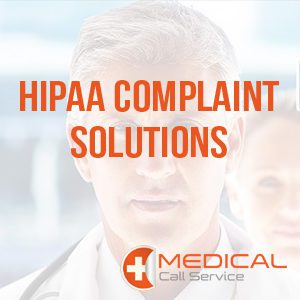
Medical Answering Service Features Your Practice Needs in 2024
In the rapidly evolving healthcare landscape of 2024, medical practices face increasing demands for accessibility, efficiency, and personalized patient care. A critical component in meeting these demands is the adoption of a comprehensive medical answering service. Such services not only ensure that patient calls are handled with the utmost care and professionalism but also support practices in managing their workload more effectively. This blog post explores the essential features of medical answering services that practices need in 2024 to stay ahead in a competitive and digitally-driven healthcare environment.
As medical practices navigate the challenges of providing exceptional patient care, the importance of effective communication cannot be overstated. The first point of contact—often a phone call—sets the tone for the patient’s entire experience. In 2024, medical answering services have become more sophisticated, leveraging technology to offer a range of features that go beyond simply taking messages. These services now play a pivotal role in improving patient satisfaction, streamlining operations, and ensuring HIPAA compliance. Let’s delve into the features that are indispensable for medical practices in this era.
24/7 Availability
Healthcare needs don’t adhere to standard business hours. A medical answering service that offers 24/7 availability ensures that patients can always reach out to their healthcare provider, regardless of the time or day. This round-the-clock support can be particularly crucial for urgent inquiries, providing patients with peace of mind and reducing unnecessary emergency room visits.
HIPAA Compliance
With patient privacy being a paramount concern, HIPAA-compliant answering services are non-negotiable. These services adhere to stringent regulations regarding the handling of Protected Health Information (PHI), ensuring that all communications are secure and confidential. This compliance not only protects patients but also shields practices from potential legal and financial repercussions associated with data breaches.
Bilingual Support
As the patient population becomes increasingly diverse, offering bilingual or multilingual support has become essential. A medical answering service that provides conversations in multiple languages can significantly enhance the patient experience for non-English speakers, ensuring that all patients receive the care and information they need without language barriers.
Appointment Scheduling and Management
Integrating appointment scheduling and management capabilities within the answering service streamlines the booking process, making it more convenient for patients and more efficient for practices. This feature can include setting up new appointments, sending appointment reminders, and handling cancellations or rescheduling, directly reducing no-show rates and optimizing the practice’s schedule.

Emergency Call Triage
For medical inquiries that come in after hours, the ability to triage calls based on urgency is crucial. An answering service equipped with emergency call triage can ensure that critical calls are escalated to the appropriate on-call medical staff, facilitating timely responses to emergencies while filtering out non-urgent calls that can wait until regular business hours.
Customizable Call Handling
Every medical practice has unique needs and preferences for how calls should be managed. A top-tier medical answering service offers customizable call handling protocols, allowing practices to specify how different types of calls are processed, routed, and escalated. This tailored approach ensures that the service aligns with the practice’s specific operational workflows and patient care standards.
Secure Messaging and Notifications
In the digital age, secure messaging and notifications are indispensable for efficient communication. A medical answering service that features secure, HIPAA-compliant messaging enables swift and safe exchange of information between the service and the practice’s staff. This capability is essential for promptly addressing patient needs and coordinating care.
Integration with Practice Management Systems
For seamless operations, the answering service should integrate with the practice’s existing management systems. This integration allows for direct updates to patient records, appointment schedules, and billing information, minimizing administrative tasks and reducing the risk of errors.
As medical practices strive to meet the evolving expectations of their patients in 2024, choosing a medical answering service with the right features is critical. The capabilities discussed—ranging from 24/7 availability and HIPAA compliance to bilingual support, appointment management, and beyond—represent the foundation of a service that can significantly enhance patient satisfaction and operational efficiency. By investing in a comprehensive medical answering service, practices can ensure that they not only meet the current demands of healthcare delivery but are also well-positioned for future challenges and opportunities.


Continuing our exploration of medical answering services and their crucial role in modern healthcare practices, let’s delve into the practical steps for getting started with a medical answering service, choosing the right provider, understanding the costs involved, and appreciating the myriad benefits these services offer to medical practices.
Getting Started with a Medical Answering Service
Embarking on the journey to integrate a medical answering service into your practice requires careful consideration of your specific needs, patient demographics, and operational workflows. Here’s how to start:
- Assess Your Needs: Begin by evaluating your practice’s size, call volume, peak call times, and any specific requirements such as bilingual support or HIPAA-compliant messaging. Understanding these aspects will help you identify the features you need in an answering service.
- Research Providers: Look for providers with a strong reputation in the healthcare industry, focusing on those that offer services tailored to medical practices. Check reviews, ask for references, and consider providers that other healthcare professionals recommend.
- Request Demos and Quotes: Contact potential providers to request demos of their services. This will give you a sense of their interface and how their services operate in real-time. Also, request detailed quotes to understand the costs involved.
- Check Compliance and Security: Ensure that any provider you consider offers HIPAA-compliant services. Ask about their data security measures, employee training programs, and any certifications they hold related to healthcare privacy and security.
- Customize Your Plan: Work with the chosen provider to customize a plan that meets your practice’s specific needs. This includes setting up call handling protocols, specifying how and when to escalate calls, and integrating the service with your practice management system.
Choosing the Right Medical Answering Service
Selecting the right service involves weighing several factors:
- Specialization in Healthcare: Opt for services that specialize in the healthcare sector and understand the nuances of medical call handling.
- Customization Options: Ensure the service can be tailored to your practice’s specific requirements.
- Technology and Integration: Look for providers that offer the latest technology and can integrate seamlessly with your existing systems.
- Cost Structure: Understand the pricing model—whether it’s based on the number of calls, minutes, or a flat monthly fee—to ensure it aligns with your budget.
Understanding the Costs
The cost of medical answering services can vary widely depending on the provider, the range of services offered, and the volume of calls handled. On average, practices might expect to pay:
- Set-up Fees: One-time fees for setting up the service, which can range from $50 to $200.
- Monthly Fees: These can vary significantly based on the service level, ranging from $100 for basic services to $1000 or more for comprehensive solutions catering to high call volumes and complex needs.
- Per-Call or Per-Minute Rates: Some services charge based on the number of calls or minutes used. Rates can range from $0.50 to $1.50 per minute or call, with discounts often available for higher volumes.
It’s essential to compare these costs against the benefits and potential savings in administrative overhead, improved efficiency, and enhanced patient satisfaction.


Benefits for Medical Practices
Investing in a medical answering service offers a host of benefits:
- Improved Patient Access and Satisfaction: Round-the-clock availability ensures patients can always reach your practice, improving their overall experience and satisfaction.
- Enhanced Efficiency: By offloading call management, your staff can focus on in-person patient care and other critical tasks, enhancing operational efficiency.
- Reduced Administrative Burden: Outsourcing call handling reduces the workload on your administrative staff, potentially leading to cost savings on labor.
- Increased Revenue: Efficient call handling and appointment scheduling can lead to fewer missed appointments, more timely follow-ups, and ultimately, increased revenue for your practice.
Incorporating a medical answering service into your practice in 2024 represents a strategic investment in patient satisfaction, operational efficiency, and compliance. By carefully assessing your needs, choosing the right provider, and understanding the costs involved, you can leverage these services to significantly benefit your medical practice. The right medical call service not only meets the immediate needs of your practice but also positions you for future growth and success in the evolving healthcare landscape.
Optimizing Your Medical Answering Service
Once you’ve selected and implemented a medical answering service, the journey towards enhancing your practice’s operational efficiency and patient satisfaction doesn’t end. Continuous optimization is key to getting the most out of the service. Here are some strategies:
- Regular Performance Reviews: Schedule periodic reviews of the service’s performance, focusing on response times, accuracy in message taking, and adherence to your protocols. Use this feedback to make necessary adjustments.
- Patient Feedback: Incorporate patient feedback regarding their experiences with the answering service. This can provide invaluable insights into areas for improvement and help gauge patient satisfaction levels.
- Staff Training: Ensure your staff is fully trained on how to work effectively with the answering service, including how to update protocols, handle received messages, and communicate changes in on-call schedules.
- Technology Integration: Continuously explore opportunities to further integrate the answering service with your practice’s technology stack, such as EHRs, CRM systems, and practice management software. This can streamline workflows and enhance data consistency.
- Expand Services as Needed: As your practice grows, your answering service needs may evolve. Be prepared to adjust your plan to include additional services such as appointment scheduling, outbound calling, or bilingual support to meet changing demands.



Future Trends Influencing Medical Answering Services
The future of medical answering services is likely to be shaped by ongoing technological advancements and changing healthcare landscapes. Here are a few trends to watch:
- AI and Automation: The integration of artificial intelligence and automated processes is expected to increase. AI could be used for more sophisticated call triaging, enabling the answering service to provide basic information or direct patients more efficiently based on the nature of their call.
- Enhanced Personalization: Advanced data analytics might enable answering services to offer more personalized responses based on the caller’s history and specific patient information, improving the patient experience and care continuity.
- Increased Security Measures: As cybersecurity threats continue to evolve, answering services will need to implement even more robust security measures to protect patient data, potentially including advanced encryption technologies and multi-factor authentication.
- Integration with Telehealth Platforms: As telehealth remains a significant component of healthcare delivery, answering services may offer deeper integration with telehealth platforms, facilitating seamless transitions from initial calls to virtual appointments.
A medical answering service is more than just an operational tool for healthcare practices; it’s a critical component of patient care and satisfaction. By choosing the right service, understanding the associated costs, and continuously optimizing the service to meet the needs of both the practice and its patients, healthcare providers can significantly enhance their operations and patient experience.
Looking ahead, staying attuned to technological advancements and industry trends will be crucial for practices to maximize the benefits of their answering service. In an era where efficiency, security, and patient satisfaction are paramount, the evolution of medical answering services will undoubtedly play a key role in shaping the future of healthcare practice management. As these services continue to evolve, they will offer even more opportunities for practices to improve their service delivery, patient engagement, and overall success.

Leave a Reply